From the very first episode, The Bad Orphan sets up an unsettling mystery that keeps viewers guessing until the dramatic conclusion. We meet Jessica and Karl, a loving couple raising their teenage daughter Rhiannon in their comfortable suburban home. With Rhiannon soon heading off to college, they decide to grow their family through adoption. That’s when Gabby enters their lives—an 8-year-old orphan girl with a tragic past who captures their hearts.
But from the start, there are signs that not everything is what it seems with Gabby. Strange events shake the family’s sense of security, and Gabby’s behavior becomes increasingly disturbing and manipulative. As tensions rise, cracks begin to form in the once-solid family unit. Jessica grows convinced Gabby is hiding secrets, yet struggles to get to the truth amid Gabby’s web of deceit.
Directed with sensitivity, the series explores the complex emotions of a family in crisis. We experience every tear, every bewildering twist through their eyes. Betsy Brandt and the whole cast immerse us in the psychological drama with deeply compelling performances. As more lies emerge and Gabby’s motives grow more opaque, we can’t pull away—even as the situation turns darker than anyone expected.
Through it all, the burning question remains: what is Gabby really after, and how far will she go to get it? Just when you think you have answers, another surprise pulls the rug out. In the end, more troubling mysteries are left than resolutions. But that’s what makes The Bad Orphan so captivating—it leaves an impact long after, raising important conversations and keeping viewers guessing to the very end.
The Bad Orphan: A Family in Crisis
From the moment Gabby enters their lives, Jessica and Karl find themselves plunged into unexpected turmoil. What starts as hope of growing their family soon evolves into a complex web of suspicion, fear, and deception weaving its way through every episode.
In the early days, Gabby appears to be the charming child Jessica and Karl agree to adopt. But strange happenings raise doubts about Gabby’s true nature. As more of her past remains shrouded in mystery, Jessica alone begins to question Gabby’s age and motives.
Yet just when answers seem within reach, Gabby’s clever manipulations spin the story in new directions. She drives deep wedges between family members and unravels their sense of security at home. With each disturbing act, Gabby psychologically impacts the family in profound ways.
As tensions intensify and distrust spreads through the household, the fate of their family hangs in an ever-darkening balance. Karl struggles to maintain faith in Gabby, while Jessica becomes convinced of a sinister scheme.
Across intriguing subplots, the series explores the deeper mysteries surrounding Gabby. The heartbreaking damage done to each character also emerges, as does Gabby’s mysterious endgame for the family she’s infiltrated.
Through it all, Jessica alone seeks to uncover the terrifying truths Gabby works so hard to hide. But will she find answers before their family crisis reaches a shattering climax?
Family Under Siege: The Complex Themes of the Bad Orphan
Woven into this gripping psychological drama are many profound themes that do not have easy answers. At its core lies the delicate balance of trust within family—and what happens when doubt tears that fabric of belief apart?
From Gabby’s introduction, trust collides with a mounting sense; she hides deeper secrets. As deception’s seeds are sown, the family’s bond is eroded. Exploring when to believe another becomes an ever-more tortuous journey.
A major thread asks how much our nature shapes us versus life’s impacts. Is Gabby’s behavior innate due to an unknown past, or has experience defined her? As suspicions grow, subtle questions emerge around separating fact from assumption.
Perceptions of innocence are also probed. At what age does one become accountable for their actions? When does protecting a child bloom into enabling further harm? Answers prove frustratingly elusive.
Adoption brings unique challenges, from integrating new identities to unforeseen baggage. But to what extent must parents overlook anomalies, and how far can providing a home be stretched? There are no simple solutions.
Most profoundly, the series depicts the immense mental toll on a family under attack from within. At what point is a breaking point found, and how much fallout stems from suspicion’s seeds? Some wounds may never heal.
Through it all, The Bad Orphan sparks crucial reflections on societal biases, accountability, and the resilience of even the strongest of bonds when truly tested. Its impact is sure to linger long after the final frames.
The Shattered Family Portrait
At the center of The Bad Orphan’s psychological unraveling is Betsy Brandt’s profound portrayal of Jessica. From the hopeful smile welcoming Gabby home to the chaos consuming her world apart, Brandt captivates in depicting a mother slowly losing grip.
Subtle nuances shine through the fraying edges of Jessica’s resolve. In snatched moments of doubt and later unleashed desperation, Brandt’s visceral performance illustrates the turmoil of rationality fighting blinding instinct. Jess’ shifting sands of trust evoke empathy, if never condoning her unraveling control.
Across the season, Karl provides equilibrium to Jess’ overflow. Yet cracks emerge in his stalwart shell too. From advocate of second chances to enabler of denial, Mark Taylor displays the strain on those left grasping flotsam.
Eve Edwards imbues Rhiannon with a youth jaded beyond her years. Caught between loyalty to her parents and self-preservation, Edwards’ Rhiannon symbolizes innocence corrupted.
Perhaps most elusive yet impactful, Chloe Coco Chapman sparks speculation as Gabby. Is she puppeteer or victim of the strings pulled before her time? As past traumas remained hidden, so did motivations in Gabby’s inscrutable gaze.
Supporting actors flesh out relations between the central fractured pieces. Together, the dynamic cast brings an all-consuming story to life, ensuring The Bad Orphan left no heart or household unscathed in the ashes of truth.
The Layers beneath the Surface
Directing with a deft hand, Michelle Ouellet peels back the story’s layers to their sensitively portrayed core. From intimate family scenes to escalating moments of unease, the realism of Ouellet’s vision draws viewers deep into the family’s world.
Immersive camerawork places us beside these characters, feeling raw nerves fray as tensions rise. Authentic suburban backdrops enhance familiar relatability, yet strange undercurrents emerge between comfortable furnishings.
Subtle yet unsettling anomalies appear through unassuming angles, mirroring the doubts gnawing within. Credible performances blossom from this grounded foundation, blossoming into visceral emotional turmoil.
Atmospheric music swells during the rarer soft scenes, lulling until abrupt switches plunge us into looming dread. Silence rings loudest as anger overflows in chillingly real family clashes.
Accolades recognized Ouellet’s unflinching direction of such sensitive themes. Her delicate yet unyielding handling unearthed the traumatic reality beneath seemingly ordinary lives, touching societal issues with grace.
While disturbing mysteries drive the plot, Ouellet’s deft touches highlight humanity’s resilience against darkness invading what should feel safest. The Bad Orphan’s impact stems as much from its visceral emotion as compelling thrills.
The Conversation Continues
By probing a case echoing Natalia Grace, The Bad Orphan reignited crucial discussion.Bringing such a real-life tragedy to the screen highlighted its rippling effects and kept a deserving story in the public eye.
The series also shed light on the plethora of challenges involved with older-child fostering and adoption.From integrating identities scarred by turmoil to unpredictabilities inherited from obscured pasts, its unflinching portrayal emphasized such issues’ complexity without easy answers.
By depicting adoption’s mental health tolls, it reminded us that stable home environments can struggle to outpace lifetimes of trauma. Triggering talks around supporting affected youth well past placement was timely.
Debates sparked by the blurry lines of responsibility showed societal biases ripe for re-evaluation. When does concern transform into a family becoming victims of their own care? Answers remain elusive, ensuring ongoing conversation.
Stimulating discourse across media amplified the series’ impact. Critiques across perspectives challenged preconceptions and extended reflection far past final scenes. Its social ripples show a story’s power to affect positive change by bringing understanding to issues too often confined in shadows.
The Bad Orphan: An Impactful Exploration of Addiction’s Shattered Lives
Overall, The Bad Orphan immerses viewers in a gripping web through four stars of accomplished storytelling. Ouellet’s nuanced direction draws out compelling performances that spotlight adoption’s complex realities and psychology’s fragile edges.
At its heart, a family torn to shreds by suspicion and deceit forms this series’ pulse-racing drive. Yet its fascinating probe into the gray whereby good intentions meet unfathomable harm resonates far beyond final scenes.
While some question Gabby’s age depiction or Jessica’s extremes, the imperfect nature of these fraught situations feels truthful. Members of all kinds of families may see wrinkles of their own stories reflected in this cautionary mirror.
Impact transcends any one character’s motivations too, as conversations sparked invite reconsidering societal perceptions. How do biased preconceptions of innocence damage the vulnerable, and how can we build understanding?
This drama succeeds in its aim to provoke thought and emotion long after viewing. While mystery hooks casual fans, its ability to spotlight issues too often confined deserves deepest praise. For bringing overlooked discussions to light with empathetic portrayals, The Bad Orphan leaves an imprint that will feel renewed with every life impacted. An impactful work sure to stand the test of time.
The Review
The Bad Orphan
The Bad Orphan presents a complex yet compelling depiction of a family torn apart by deception, successfully spotlighting important issues around adoption, childhood trauma, and the human impact of mental illness. Despite some flaws, the strong direction and performances sustain engrossing storytelling that provokes reflection long after viewing. For shedding light on little-understood struggles and opening discussions surrounding societal biases, The Bad Orphan has an important lasting impact.
PROS
- Gripping psychological thriller plot that keeps viewers engaged
- Nuanced exploration of complex themes around adoption and family dynamics
- Strong central performances, particularly from Betsy Brandt as Jessica
- Provokes thoughtful discussion on issues presented
CONS
- Gabby's age portrayal is somewhat unrealistic
- Some episodes dragged the pacing of the overarching mystery
- Jessica's descent into extremes toward the end strained credibility at times
- Sound design had minor but distracting flaws in spots
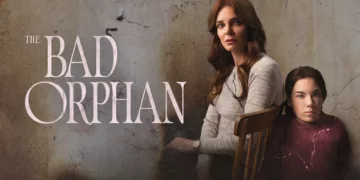







































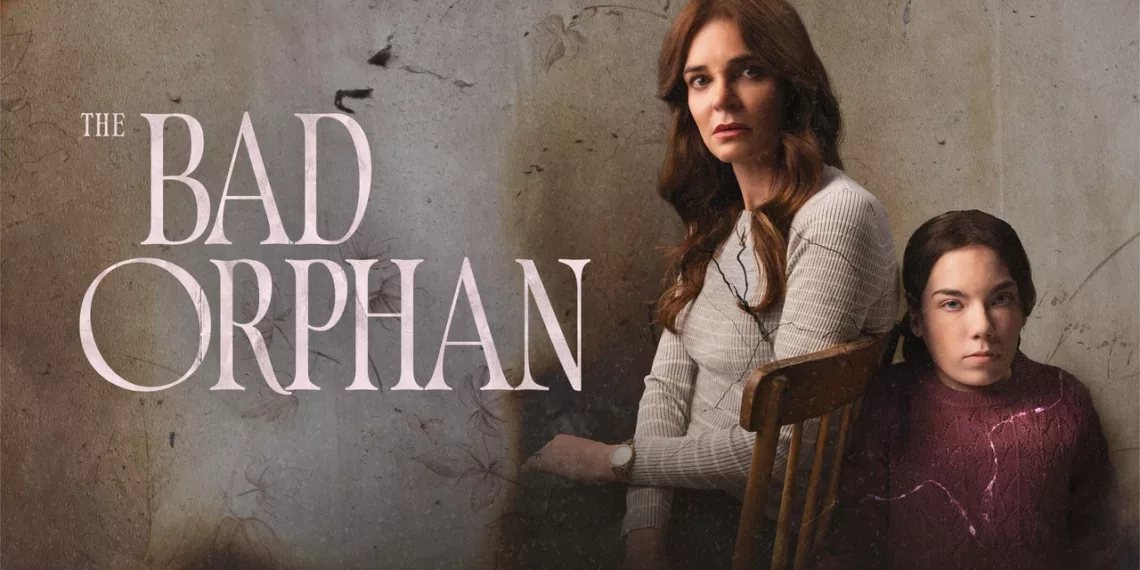
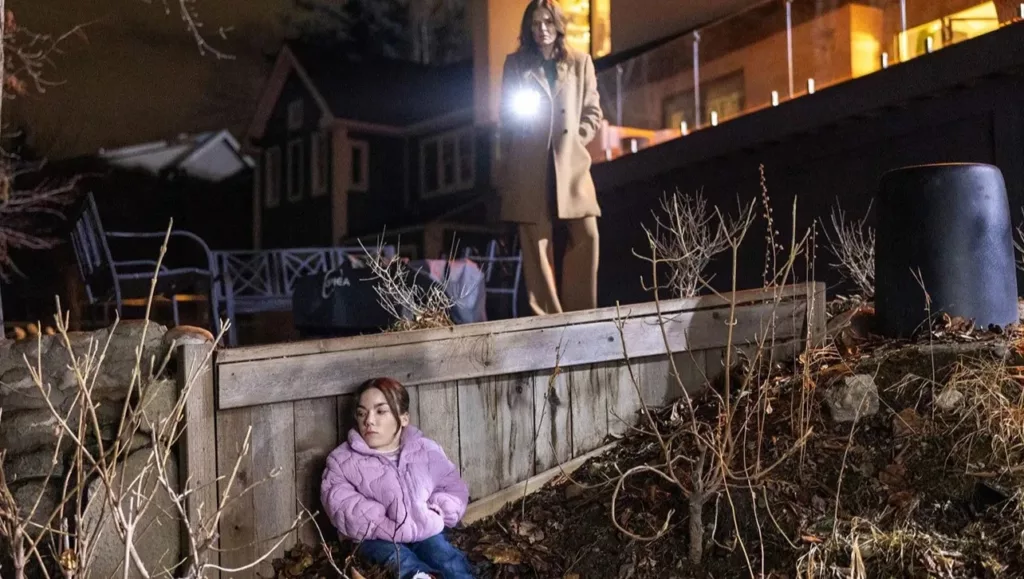
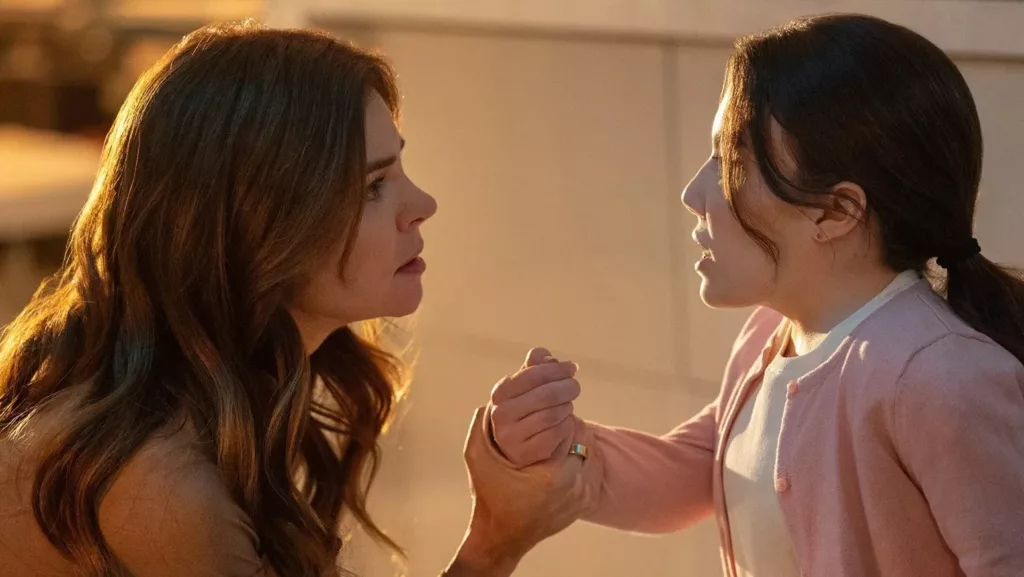
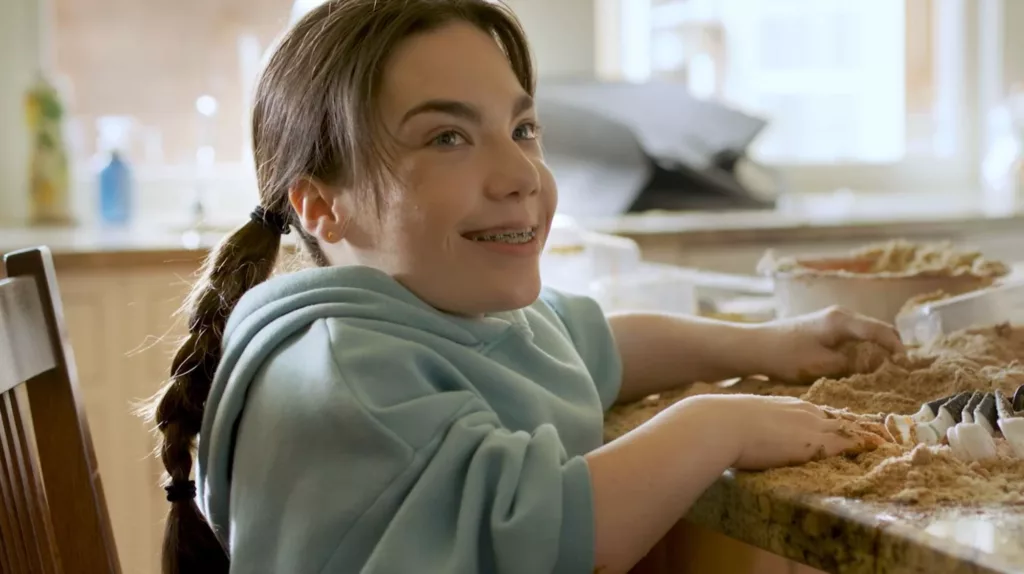
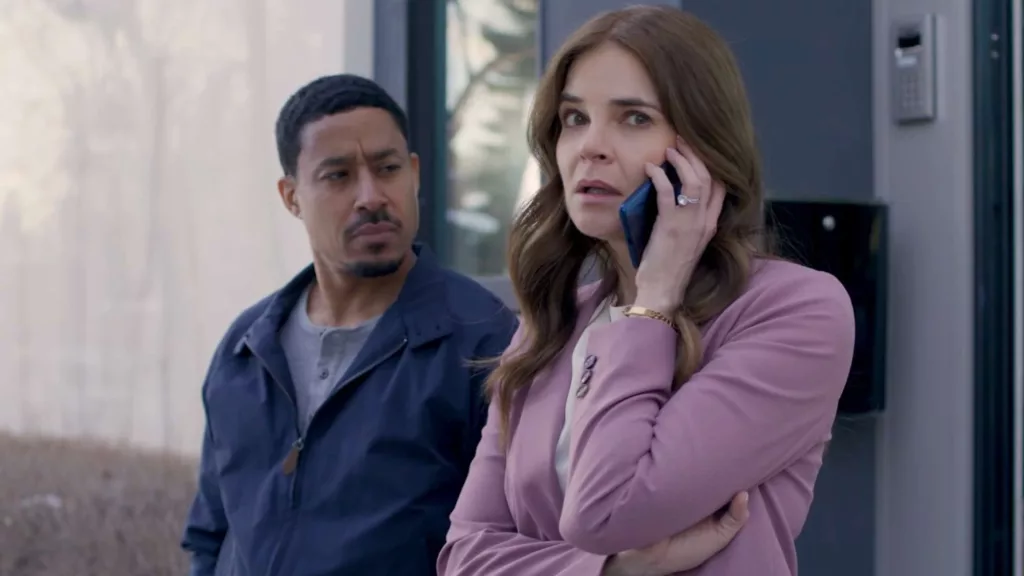
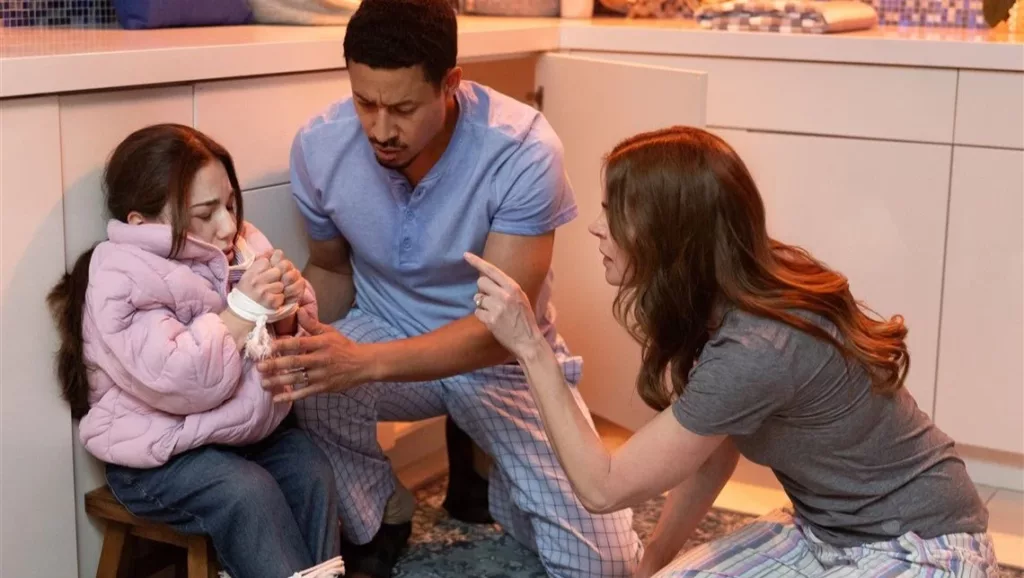








Discussion about this post